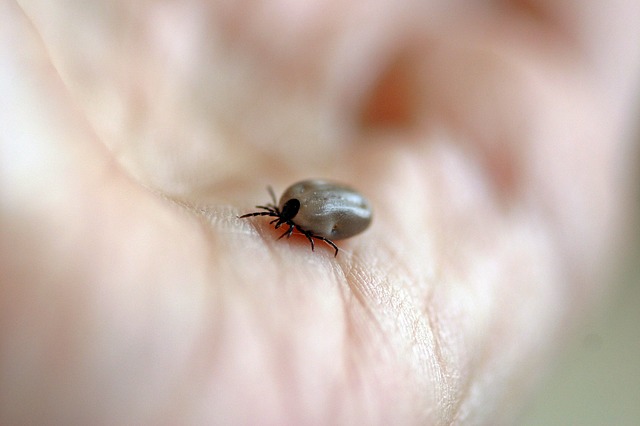As the weather gets warmer, we want to get outside and enjoy the sunshine. The kid in all of us sees this time of year as the perfect season for outdoor play. Our pets want to go to the park, our kids beg to stay out just a little bit longer, and we’d rather cook on the grill than the order in.
There are a few drawbacks you need to know about if you won’t spend time outside enjoying the warmer weather. One of the worst is finding a hitchhiker on your body. Yes, we’re talking about ticks. When you find one, you start asking yourself a ton of questions and you’re probably starting to freak out a little. Have no fear, the Clark Exterminating team is here. Our expert staff put together a list of answers to those questions you have if a tick ever creeps onto you, a family member, or your pets.
How do I remove a tick from my body?
If you find a tick, try not to panic. Once you’ve located the tick, use a pair of tweezers to grasp the tick as close to your skin as possible. Pull up, and don’t twist or jerk the tick Those kinds of movements will cause the mouth to break off and stay in your skin, according to the Centers for Disease Control. Once the tick is removed, clean the bite area with alcohol or soap and water.
When should I be concerned about a tick bite?
At one point or another, we’ve all thought about Lyme disease or any type of tick-borne illness. It’s important to note that Lyme disease isn’t prevalent in all areas. Depending on the area you were in when you were bitten, you may not be at risk. A complete list of geographic areas where Lyme disease is found is available here.
The first sign of Lyme disease is a rash that expands from the initial tick bite. Lyme disease sufferers also will have flu-like symptoms. It’s unlikely to contract Lyme disease if the tick was attached for less than 36 to 48 hours, according to the Mayo Clinic. At the first sign of Lyme disease, seek help from your physician for treatment.
What kinds of ticks transmit Lyme disease?
There are two types of ticks that transmit Lyme disease: the Blacklegged tick and the Western black-legged tick.
How can I prevent ticks from entering my home?
If you’re hiking or heading outdoors, there are some tips to remember to keep ticks away. It’s recommended to use a bug spray to keep the ticks off of any exposed skin. Ticks really like warm, moist locations such as your armpits, groin, or backs of your knees. If you’re planning a hike or camping trip, try to keep those areas covered if you’re planning on going into the woods or an area with tall grass.
Our favorite way to prevent ticks from entering your home is for our Clark Exterminating technicians to treat your yard for fleas and ticks. Ticks not only pose a threat to humans, they can also bother our furry friends. Call us for a quote for a yard treatment or a home treatment today. We’d be happy to stop your bug problem in its tracks!
Little Rock: 501-228-0322
North Little Rock: 501-758-0322
Conway: 501-329-0396
Benton: 501-776-1388
Bryant: 501-847-1388
Jacksonville/Cabot: 501-843-1322
Hot Springs: 501-623-2335




